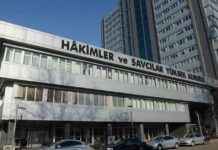Cesme Municipality Joins the Trend of Selling Public Property
In Izmir, the trend of selling public properties by the CHP-led municipalities has been on the rise. Following the footsteps of municipalities in Güzelbahçe, Dikili, Bornova, Selçuk, Seferihisar, and Bayındır, Cesme Municipality has also decided to sell off a piece of its property. The municipality has put up for sale a 3,805.4 square meter land with an estimated value of 201.5 million Turkish Lira.
Selling off public properties has become a common practice in Izmir, especially for the CHP-led municipalities. These municipalities are facing financial challenges and are looking for ways to ease the burden of debt and pay off their obligations. As a result, they have resorted to selling off properties owned by the municipality to raise funds. Cesme Municipality, under the leadership of Mayor Lal Danizli, has now joined this trend by putting up a valuable piece of land for sale.
Setting a Reserve Price of 291 Million Turkish Lira
Under the directive of Mayor Denizli, a piece of land located in Ardıç Mahallesi, with a total area of 3,805.4 square meters, has been listed for sale. The reserve price for this property has been set at 201.5 million Turkish Lira. The official announcement for the sale has been published in the Official Gazette, with the auction scheduled to take place on September 26th at 3:00 PM at the Cesme Municipality Main Service Building Council Chamber. The proceeds from the sale will be used to pay off a significant portion of the municipality’s debts to public institutions, organizations, and local businesses.
Subheadings:
Impact on Cesme Municipality’s Finances Public Reaction to the Sale Controversy Surrounding the Sale
Controversy Surrounding the Sale
Impact on Cesme Municipality’s Finances
The decision to sell off a valuable piece of property by Cesme Municipality has sparked discussions about the financial health of the municipality. While the sale is expected to generate a substantial amount of revenue, there are concerns about the long-term implications on the municipality’s finances. Some critics argue that selling public properties may provide a quick fix for debt repayment but could have negative consequences in the future.
On the other hand, supporters of the sale believe that it is a necessary step to alleviate the financial burden on the municipality and improve its financial stability. By selling off underutilized assets, the municipality can redirect the funds towards essential services and infrastructure projects that benefit the local community. However, the true impact of the sale will only be known once the auction takes place and the proceeds are used to settle the municipality’s debts.
Public Reaction to the Sale
The decision to sell public property by Cesme Municipality has not been without controversy. Some residents and local businesses have expressed concerns about the sale of valuable land that could have been used for public benefit. There are fears that once the land is sold, it may be developed for commercial purposes, leading to a loss of green spaces and public amenities in the area.
Others have raised questions about the transparency of the sale process and whether the reserve price accurately reflects the true value of the property. Some critics argue that the reserve price of 201.5 million Turkish Lira may not be sufficient to capture the full potential value of the land, leading to potential losses for the municipality.
Controversy Surrounding the Sale
The decision to sell public property by Cesme Municipality has also raised broader questions about the role of municipalities in managing public assets. While selling off properties may provide short-term financial relief, it also raises concerns about the long-term impact on the municipality’s financial sustainability. Critics argue that municipalities should explore alternative revenue sources and fiscal management practices to address their financial challenges without resorting to selling public assets.
Furthermore, the sale of public properties has highlighted the need for greater transparency and accountability in the management of municipal assets. Residents and stakeholders are calling for more oversight and public consultation in decisions related to the sale of public properties to ensure that the process is fair and in the best interest of the community.
In conclusion, the decision by Cesme Municipality to sell off a valuable piece of property highlights the financial challenges faced by municipalities in Izmir and the broader implications of selling public assets. While the sale may provide temporary relief for the municipality’s debts, it also raises questions about the long-term impact on the community and the need for sustainable fiscal management practices. It remains to be seen how the auction will unfold and what the proceeds will be used for, but it is clear that the sale has sparked important discussions about the role of municipalities in managing public assets and finances.











